12 climate themes for 2023 - pt 1
Climate Tech VC, adapting, clean energy, methane, and a controversy
Hi everyone, I’m Ben, Founding Partner at Marble. I write a monthly column to share thoughts on the evolving landscape of climate solutions, and ways to increase the rate of progress in society.
In this issue, in two parts, I’ll cover 12 climate themes that caught my attention last year and I’ll follow in 2023. I will cover 6 in each part:
🦄 Climate Tech $$
🌍 Adaptation
⚡️ Clean energy
💧 Clean molecules
🐮 Near-term warming
🪞 Sunlight reflection
🎛️ Carbon removal
⛏️ Critical metals
🏦 Climate policy
🏗️ Infrastructure
🔬 Breakthrough tech
🧠 Metascience
🦄 Climate Tech investment
Despite challenging macro conditions, climate tech remained mostly insulated from slowdown. The team at CTVC just released their annual report: investors poured $40bn into climate tech startups in 2022, a 3% downtick driven by a drop at the growth stage. However, Seed and Series A grew 61% and the total deal count grew 40% across all stages.
I liked Nat Bullard’s BNEF piece about climate tech becoming narrower and broader at the same time. This is due to both specialised early-stage funds (ocean, fusion, carbon removal, wildfires, etc) and large infrastructure funds with an explicit climate focus (not included in the CTVC report btw).
2023 should be a record year, driven by $37bn of venture dry powder ready to be deployed, the real impact of the US Inflation Reduction Act (more in part 2) and the insane talent flowing into climate. We’re seeing the latter every day at Marble, as we match top Founder talent to the best problem to create massive climate companies. Applications are open here for our April cohort.
🌍 Adaptation
2022 was a stark reminder that climate change is already here. In Europe it was the second warmest year on record, with massive fires, heat waves, and droughts. China and South Asia suffered from prolonged heatwaves, followed by devastating floods in Pakistan. In February 2022, Antarctica's sea ice reached its lowest point in 44 years of record. Oceans were the hottest ever recorded.
Adaptation will become a central focus for governments, large companies, entrepreneurs and investors: Breakthrough Energy Ventures announced it will expand to adaptation. One of our first Marble companies cools arid regions to terraform new arable land and help cities adapt.
The climate tech opportunity space in adaptation is vast: climate risk intelligence, disaster response, water harvesting and management, drought resistant agriculture, and resilient infrastructure, to name a few.
⚡️ Clean energy renaissance
The Russian invasion of Ukraine propelled the post-pandemic energy crunch into a global energy crisis. In Europe, it seems winter is not coming this year after all so we got lucky. After going through the roof, gas and electricity prices fell back to pre-war levels but remain high. The humanitarian impact of fertiliser prices (which depend on fossil gas) is a big concern.
Will energy security be a boon or a bane for decarbonisation? In the near term, we’ve seen more coal consumption and gas infrastructure. However, the IEA thinks the crisis turbocharged the growth of renewables, and that the decade of peak fossil has finally arrived. This is great news, but in addition to solar and wind, we need to go much faster on heat pumps, building retrofits, EVs, and grid-scale energy storage. And electrification broadly.
There are signs of a nuclear renaissance. Public opinion is shifting in Europe, several countries are making a U-turn on extending the life of existing plants (Germany, Belgium, California, Japan) while others launch new build programmes and small modular reactors are on the horizon. Geothermal is another baseload power and heat option that is massively overlooked.
💧 Clean molecules
For industry and heavy transportation, decarbonisation depends a lot on our ability to make basic molecules with no emissions. Hydrogen, ammonia, methanol, ethylene, and long-chain hydrocarbons (such as jet fuel) are the most crucial to decarbonise steel, chemicals, shipping and aviation, where global demand is set to grow significantly.
The IEA reviewed 2,000 clean hydrogen projects in the pipeline, but scaling and meeting cost targets will be difficult. For this reason, I hope 2023 will bring more focus to the priority applications of hydrogen instead of silly ones where better alternatives exist (ex: passenger cars).
This year should bring attention to the radiative forcing impact of hydrogen and the importance of minimising leaks. Geologic hydrogen and new pathways for methanol, ammonia and SAFs will emerge. Corporate off-takers will continue to announce projects, especially in shipping, aviation and steelmaking.
🐮 Near-term warming
The temperature progression over the next few decades is something we need to address more tactically. As the Spark Climate team argues, this is not only about the warming we feel today, but also the climate feedback and tipping points that could be triggered by warmer temperatures.
Methane is the biggest contributor, accounting for a third of the warming we’ve felt since the industrial revolution. It remains only 10 years in the atmosphere but its warming impact is 85x as high as CO2 on a 20-year time scale. The situation is getting worse as atmospheric methane levels are growing at a record rate due to soaring emissions and weaker methane sinks.
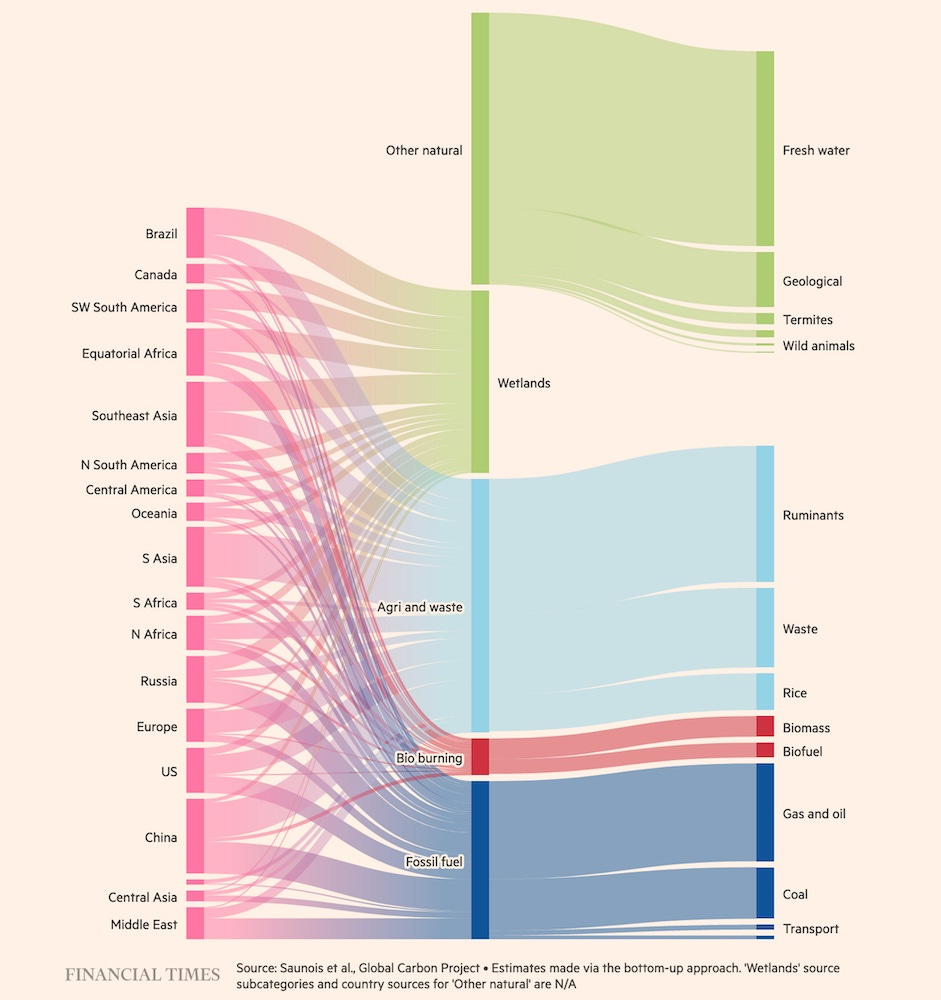
I think 2023 will see an increased focus on methane, near-term warming, and possibly radiative forcing. At Marble, we’re looking for Founders to join us and develop new solutions for rapid methane abatement.
🪞 Sunlight reflection
Let me end with a controversial take: solar radiation management (also known as solar geoengineering) will not be taboo much longer. I think it might take a central place this year within UN circles and in the public debate.
The Overton window for SRM has widened so much that pioneer climate activist Bill McKibben does not rule it out in the New Yorker. The Economist also seems to have warmed up to the idea (pun intended) given where we are.
A number of initiatives were established to work on the idea, such as the Overshoot Commission (under the Paris Peace Forum), the Degrees Initiative (with a focus on the global south), the Carnegie Climate Governance Initiative and an NGO called Silver Lining. And a handful of academic groups.
What do I think? Well, the absolute priority is to decarbonise and remove carbon at warp speed. However, we will very likely overshoot the totemic 1.5°C target. So we might have to use SRM to “shave peak warming” and prevent suffering from the most vulnerable populations. At the very minimum, we should do proper research on SRM impacts and governance.
Everyone in the field agrees deployment is off the table for now. Unfortunately, a startup called MakeSunsets claims it already started releasing reflective particles and selling “cooling credits”. What could go wrong?
In Part 2 we’ll cover CDR, critical metals, policy, infrastructure, breakthrough tech and metascience. Hit 💛 and leave a comment!



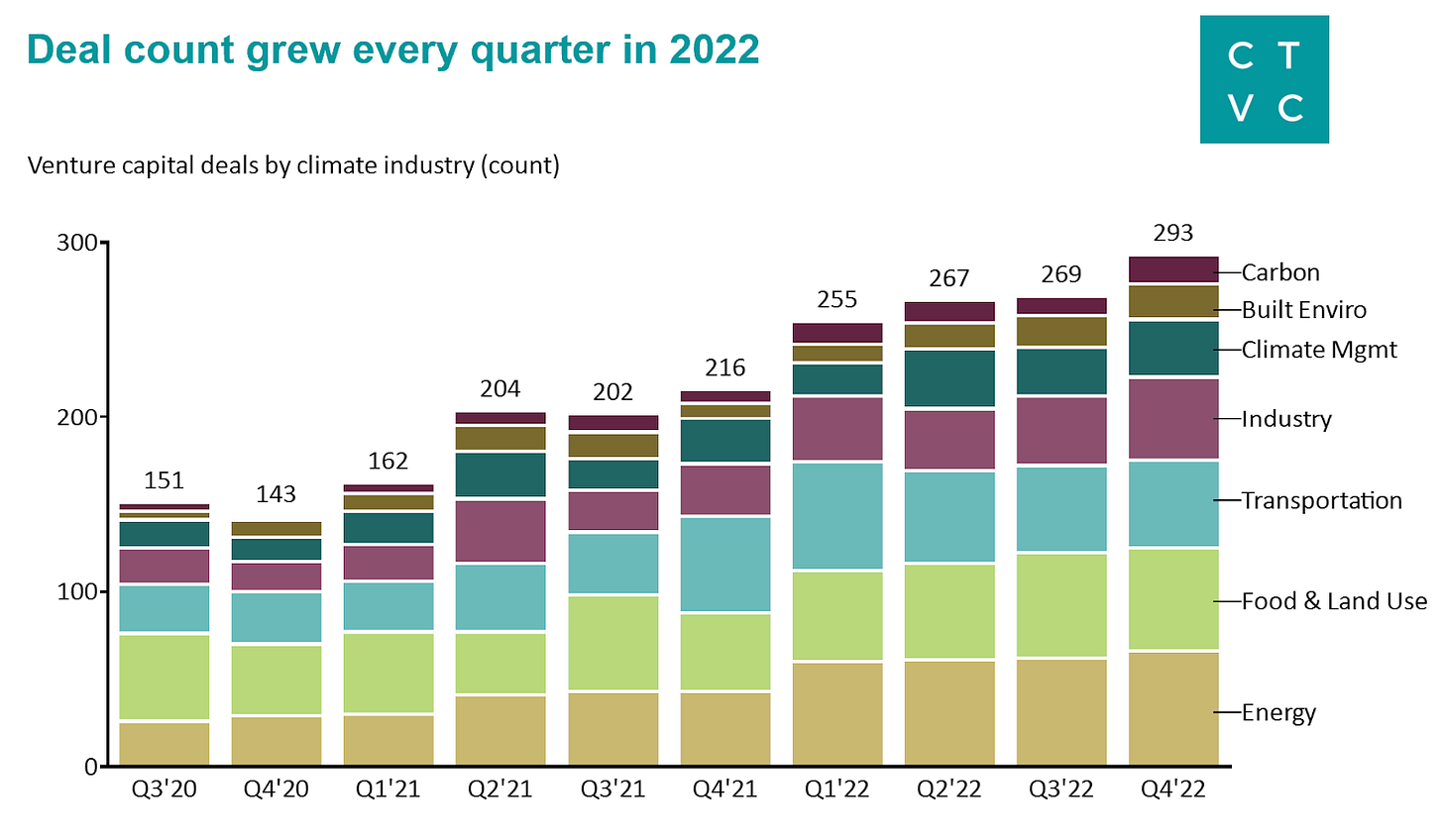
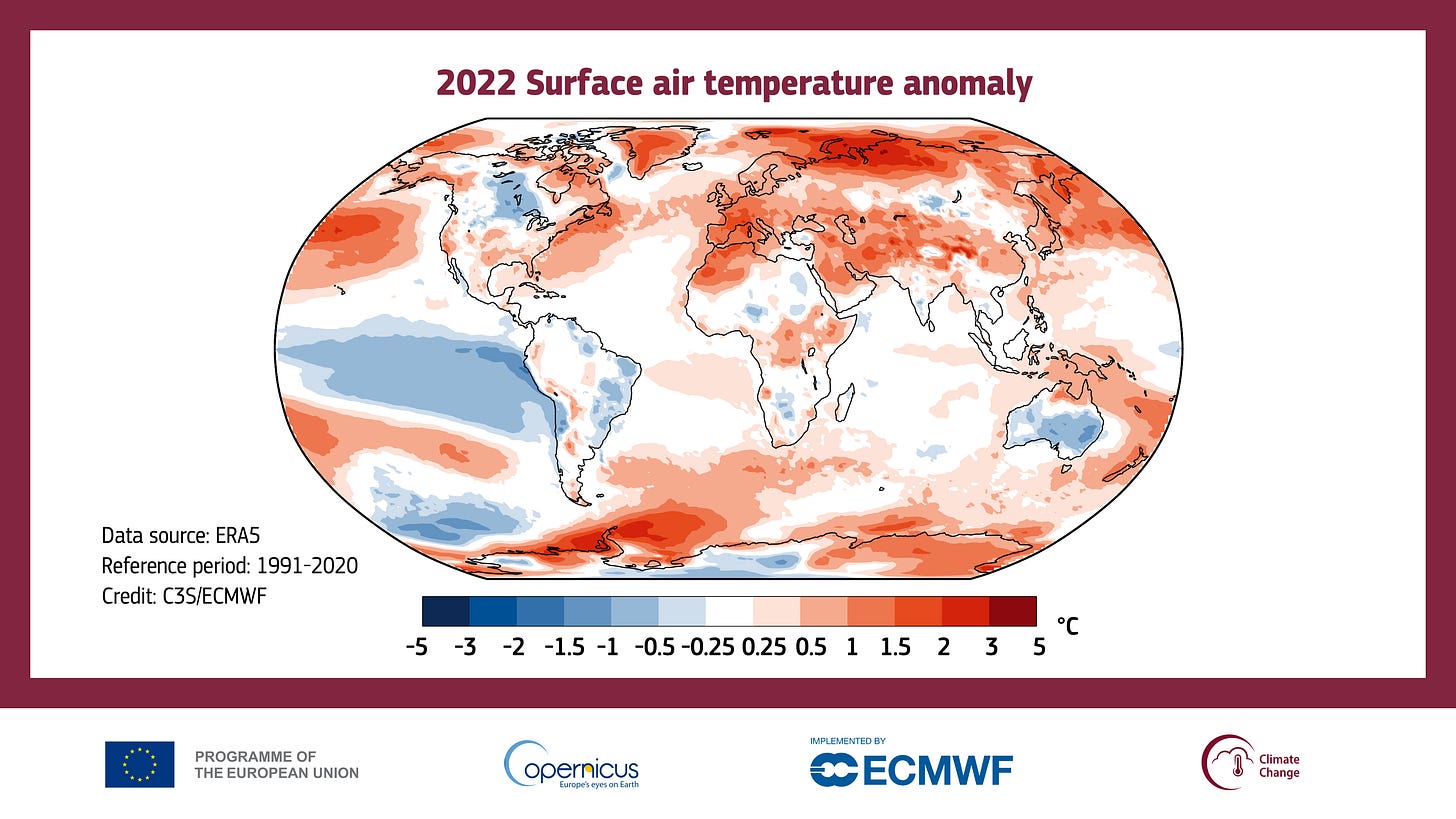

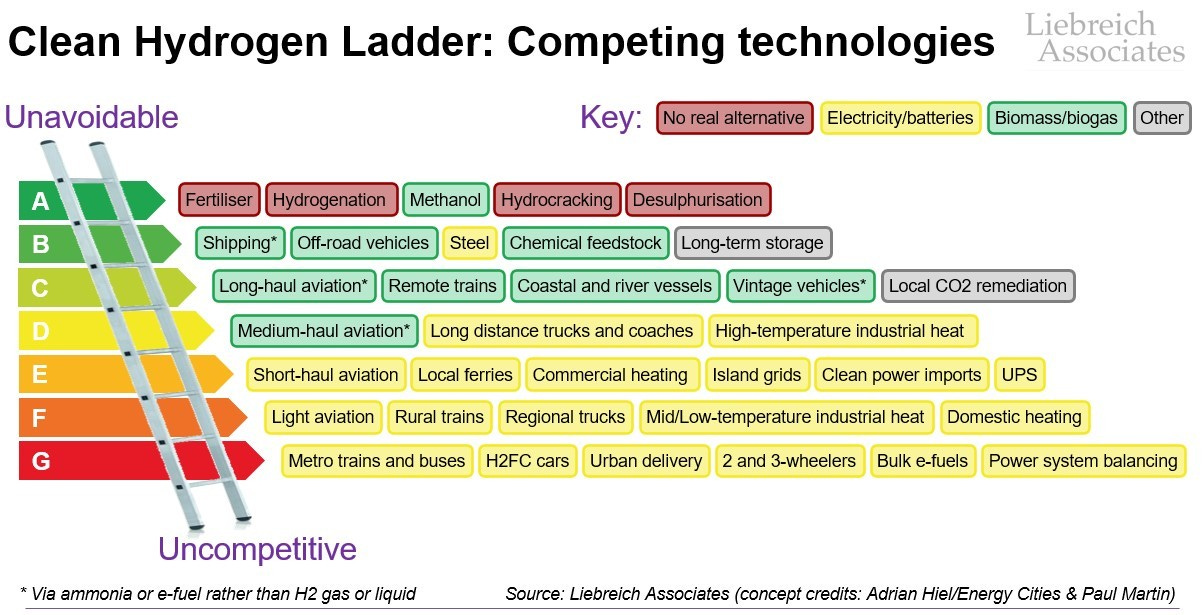
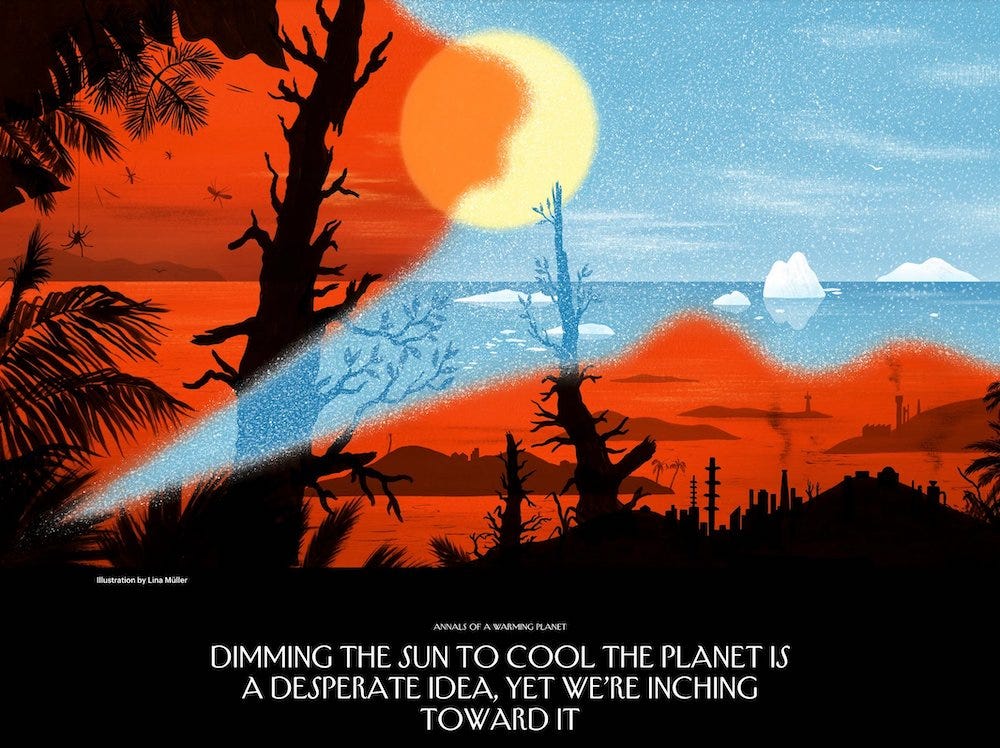
Great newsletter - looking forward to the next instalment. Also found the FT article on methane fascinating (and genuinely terrifying...). SRM movements continue bringing us closer to 'Ministry for the Future' territory